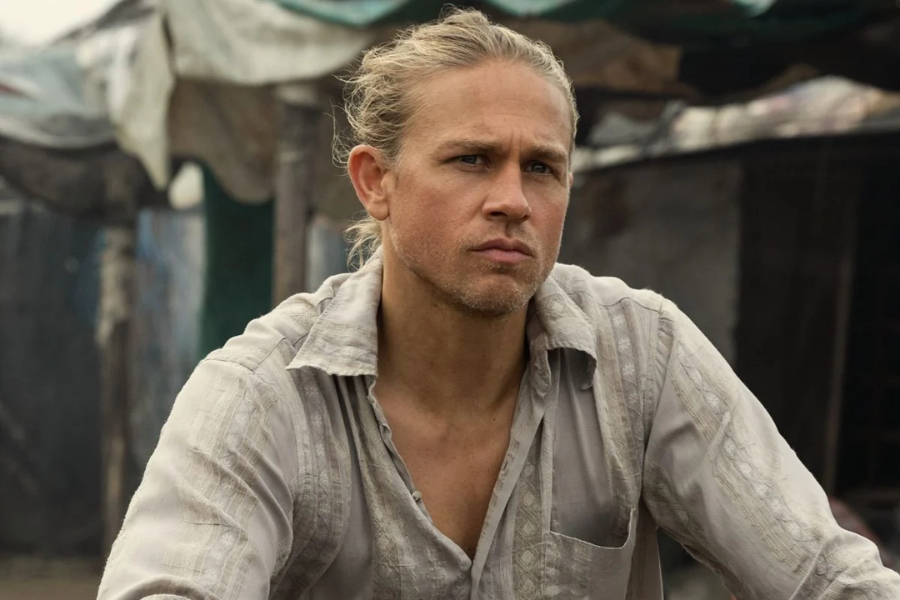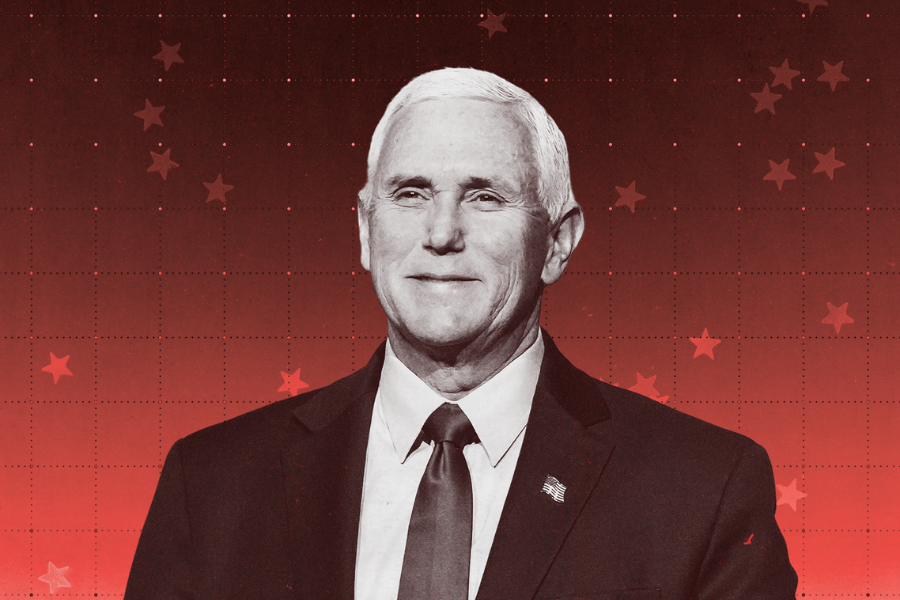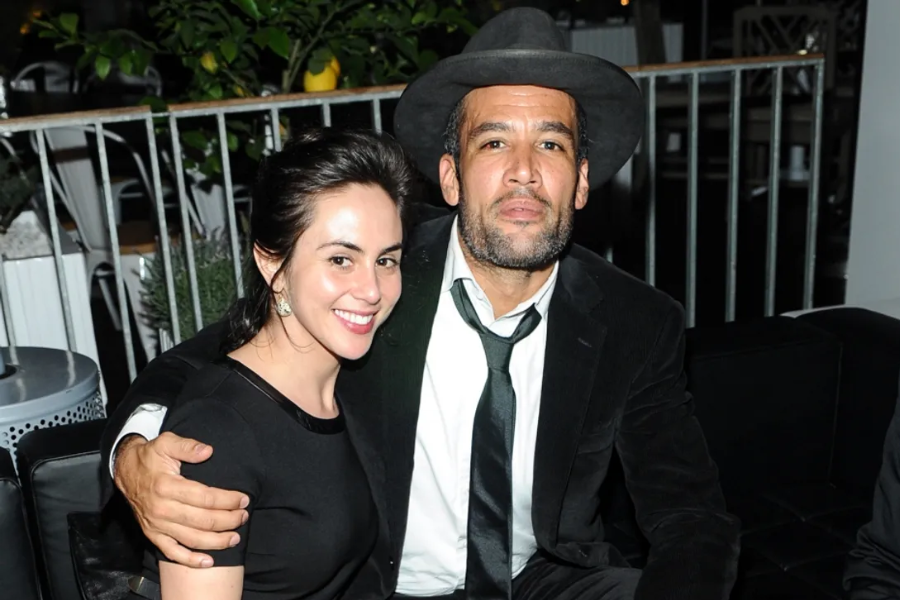Charlie Hunnam’s journey as an actor has seen significant transformations, particularly after his iconic role as Jax Teller in the hit TV series Sons of Anarchy. For many fans, Hunnam became synonymous with the character of Jax, a brooding and complex vice president (later president) of a motorcycle club, whose struggles with loyalty, love, and leadership captivated audiences throughout the show’s seven-season run from 2008 to 2014. However, since Sons of Anarchy ended, Hunnam’s career trajectory has changed in ways that have left many wondering why he’s not the same actor he once was. While the fame he gained from the show certainly helped solidify his place in Hollywood, Hunnam’s post-Sons life has been shaped by a series of personal and professional shifts that have impacted his choices and mindset.
Struggling with the End of an Era

When a show as monumental as Sons of Anarchy comes to an end, it’s natural for an actor to experience a sense of loss. For Hunnam, saying goodbye to Jax Teller was more challenging than anyone could have anticipated. Having played the character for over six years, it wasn’t easy for Hunnam to simply let go of the role. He revealed in interviews that it took a long time for him to shake the feeling of nostalgia and the connection he had with his time on the show. Hunnam described how, after filming ended, he would find reasons to return to the set to simply walk around and relive the experience. In fact, he admitted to sneaking onto the set for a few nights after production wrapped, telling security guards that he’d “forgotten something,” just so he could revisit the environment and come to terms with the emotional impact of leaving the world of Sons of Anarchy behind.
Hunnam’s deep attachment to the role of Jax and the show itself is understandable. Sons of Anarchy became a cultural phenomenon, and it cemented Hunnam’s place as one of the most beloved actors of the era. But transitioning away from a career-defining role isn’t always easy, and for Hunnam, the emotional weight of saying goodbye was something that lingered long after the cameras stopped rolling.
Personal Tragedy and Career Impact
As if the challenge of leaving Sons of Anarchy wasn’t enough, Hunnam also faced personal loss at a pivotal time in his life. In 2013, during the final season of the show, he lost his father, which added a layer of complexity to an already difficult transition. Hunnam’s father, a scrap-metal dealer from Newcastle, had a complicated relationship with him. While they had their differences and his father wasn’t always present in his life, the death of his father forced Hunnam to confront the realities of life, death, and what he truly valued in his career and personal life.
The loss had a profound effect on Hunnam’s career decisions. One of the most publicized outcomes of this period of grief was Hunnam’s decision to turn down the role of Christian Grey in the film adaptation of Fifty Shades of Grey. This move shocked fans and raised many questions about his career trajectory. While his decision was undoubtedly influenced by his emotional state following his father’s passing, it also revealed a shift in Hunnam’s approach to his career. He began to prioritize his personal well-being and his emotional readiness for the roles he was offered, rather than simply chasing fame or financial success.
This change in perspective led to Hunnam deciding to explore more meaningful and reflective projects. In 2017, he shared his plans to create a biographical family drama film inspired by his father’s life, hoping to portray the complexities of their relationship and explore themes of ambition and familial conflict. This new direction in his career allowed Hunnam to process his grief and reconnect with the values that had been instilled in him throughout his upbringing.
Struggling with the Fear of Unemployment

Despite the fame and success Hunnam garnered from Sons of Anarchy, the transition from television star to a film actor presented a new set of challenges. The security of knowing he had a steady paycheck from the show was gone, and now Hunnam was navigating a world where career opportunities weren’t guaranteed. Even though he had already established himself as a respected actor, the pressure to find his next big project loomed large.
In interviews, Hunnam has spoken openly about the anxiety he feels when it comes to choosing roles. In fact, he has described the process of selecting films as a daunting task. Once Sons of Anarchy ended, he found himself responsible for making major career decisions, and that responsibility was both intimidating and stressful. He has admitted that despite his success, he always feels like he’s just “one failed movie away from being unemployable.” This fear of career failure is something that many actors experience, but it can be particularly pronounced for someone who has had the kind of meteoric rise that Hunnam did. It’s easy to feel the weight of past successes and the pressure to repeat them in order to stay relevant.
This uncertainty led to some self-reflection on Hunnam’s part. He questioned his own motivations and what he truly wanted from his career moving forward. Hunnam confessed that he didn’t enjoy the stressful nature of choosing roles based on the potential for box-office success. Instead, he found that he was far more fulfilled when he could focus on working with good directors and telling stories that resonated with him on a deeper level. This realization was key to Hunnam’s post-Sons career, as he started to gravitate toward projects that aligned with his own values, even if they didn’t come with the same level of financial security or mass appeal as his past work.
A Different Focus on Life
In the years following Sons of Anarchy, Charlie Hunnam has increasingly shifted his focus away from fame and fortune and toward a more introspective and meaningful life. He’s often described his approach to life in terms inspired by Zen philosophy, which emphasizes mindfulness, balance, and personal growth. Hunnam has been vocal about his desire to focus on living in the present moment, rather than getting caught up in the external pressures of Hollywood.
This change in focus is reflected not only in his career choices but also in his personal life. Hunnam has often spoken about his desire for privacy and his reluctance to dive into the public eye too often. Unlike many of his peers who continue to chase fame and maintain a constant presence in the media, Hunnam has carved out a quiet life for himself, one where he can reflect on his journey and prioritize his well-being.
Additionally, Hunnam’s shift toward working in film, rather than committing to another long-running TV series, represents his desire to take on more diverse and varied roles. He’s no longer just the “bad boy biker” from Sons of Anarchy; he’s a man who is looking for roles that challenge him and offer more substance.
Conclusion
Charlie Hunnam’s career post-Sons of Anarchy has been defined by both personal and professional shifts. His emotional attachment to Jax Teller and the loss of his father shaped his career decisions, pushing him to pursue roles that aligned with his values and helped him process personal grief. The transition from a beloved television character to a film actor has not been without its challenges, and Hunnam has admitted to struggling with the pressures of making career choices and the fear of failure.
Despite these challenges, Hunnam has proven himself to be a thoughtful and introspective actor who continues to evolve both personally and professionally. His journey reflects the reality that success in Hollywood is not always about chasing the next big project, but about finding peace within oneself and pursuing work that resonates on a deeper level. Charlie Hunnam may never be the same actor he was during his Sons of Anarchy days, but in many ways, he has found a new, more authentic path that allows him to grow and thrive as an individual and an artist.
Explore trending topics and breaking news across entertainment at EasyFuzz.com.











